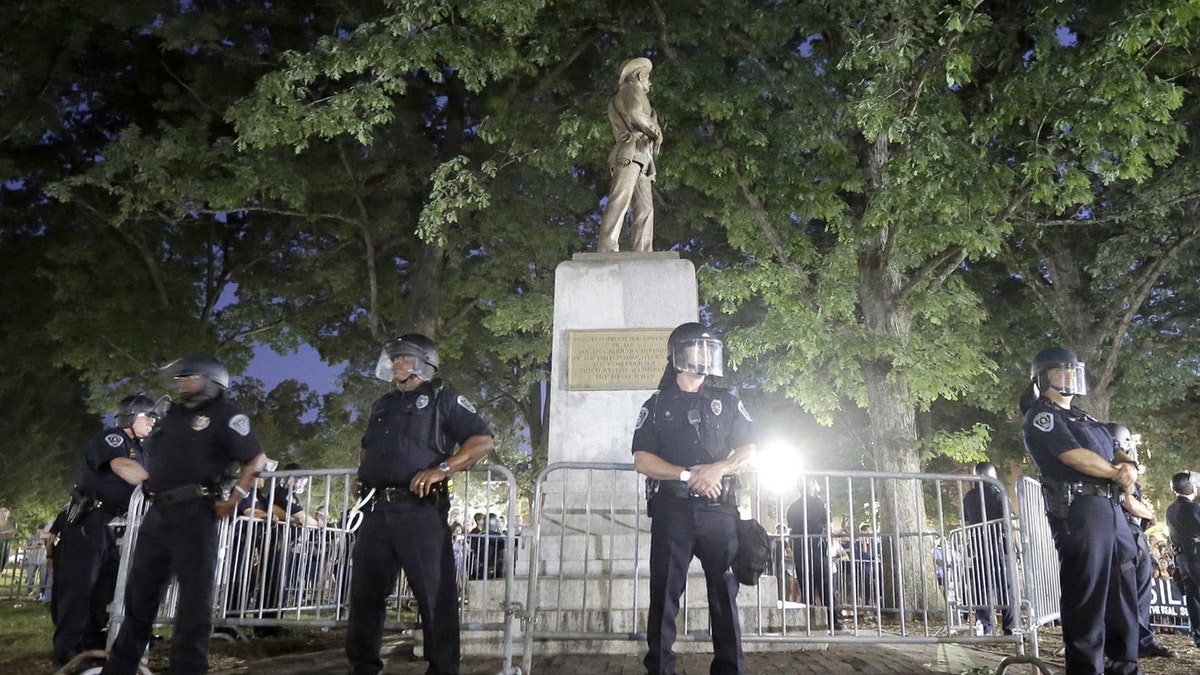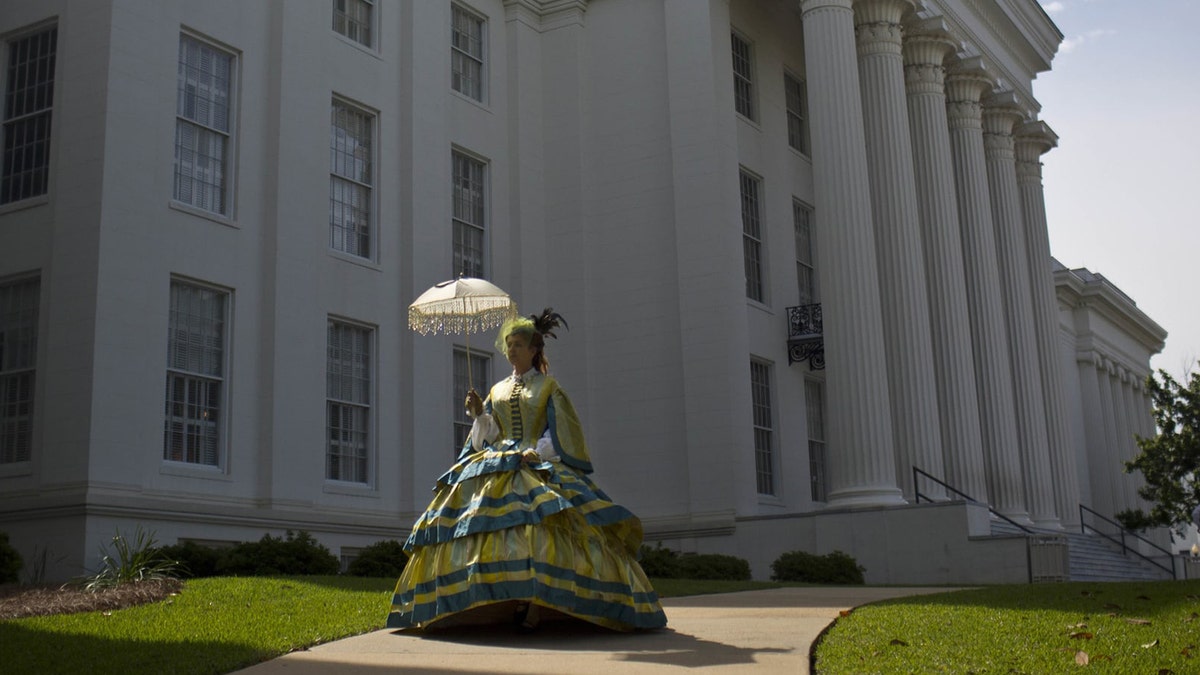Confederate monument sparks legal dispute
A wall that encircles a Confederate monument in Birmingham, Ala. has fueled a fiery legal dispute between the city and state.
On the first anniversary of the Charlottesville protests, which turned deadly in clashes between white nationalists and anti-fascists on opposing sides of whether to keep a statue of Confederate General Robert E. Lee in the Virginia city, a group of persistent activists is fighting to protect the controversial statues.
The United Daughters of the Confederacy (UDC), a 124-year-old organization, issued a rare public statement after the Charlottesville riots last summer:
“We are grieved that certain hate groups have taken the Confederate flag and other symbols as their own,” the UDC’s president general, Patricia M. Bryson, wrote following the August clashes that resulted in the death of counter-protester Heather Heyer and the brutal beating of DeAndre Harris.
However, while Bryson insisted that the UDC condemned anyone who “promotes racial divisiveness or white supremacy,” she argued that the Confederate ancestors honored by these memorials “were and are Americans.”
In the year since the riots, more than 30 cities across the United States have removed or relocated Confederate statues and monuments amid an intense, ongoing debate about race and history.
Bryson issued a call of her own a year ago: “Join us in denouncing hate groups and affirming that Confederate memorial statues and monuments are part of our shared American history and should remain in place.”
Activists who want to see the statues removed disagree.

Police surround the Silent Sam Confederate monument during a protest to remove the statue at the University of North Carolina in August 2017. (AP)
“There is no Silent Sam without black blood, without violence towards black people,” Maya Little, who defaced a Confederate soldier statue in May on the University of North Carolina’s campus, said.
Little continued: “I would say all that blood is on their hands. And it will continue to be until they take a stand—until they... make an effort to take these monuments down and to be a part of actual racial equality, racial justice.”
The UDC is a group of older women who gather on Confederate Memorial Day to lay wreaths of boxwood and sing renditions of Dixie to honor the estimated 260,000 Confederate soldiers who died in the Civil War, but they also have taken action to preserve Confederate statues.
As memorials have been taken down and streets or schools have been renamed, the Daughters have fought back with lawsuits aimed at stopping the removal of rebel monuments from public spaces.
The national UDC, headquartered in Richmond, Va., did not respond to a request for comment from the Associated Press. In its heyday around World War I, the group had about 100,000 members. But in a 2000 speech, its then-president estimated there were 25,000 members across 700 chapters in 32 states.
“I don’t know if we’ve got one more generation left in it,” historian Karen L. Cox, author of "Dixie’s Daughters: The United Daughters of the Confederacy and the Preservation of Confederate Culture," told the Associated Press.
Despite shrinking numbers, the group still has influence.

A member of the United Daughters of the Confederacy in front of the Alabama capitol building during a Confederate Memorial Day ceremony in Montgomery, Alabama on 27 April 2015. (AP)
When Vanderbilt University decided to change the name of Confederate Memorial Hall, the Daughters’ Tennessee Division sued for breach of contract. In 2016, the UDC won a $1.2 million judgment—the current-day value of the $50,000 donation the group made toward construction of the dormitory back in 1935.
Last August, after the San Antonio City Council voted to remove a Confederate soldier monument from Travis Park, the local UDC chapter sued, claiming that it owned not only the monument but the ground beneath it. That case is pending.
In her post-Charlottesville statement, Bryson said the UDC was “saddened that some people find anything connected with the Confederacy to be offensive.” But rather than publicly joining the fray, she said, the Daughters, “like our statues, have stayed quietly in the background, never engaging in public controversy.”
Little says the Daughters need to stop acting as if they’re the victims: “Being silent in the face of racism or violence is complicity in those acts.”
Little’s criminal vandalism trial is scheduled for October. In June, the UNC office of student conduct charged her with violating the honor code by “stealing, destroying or misusing property.”
Meanwhile, Silent Sam still stands on the University of North Carolina’s campus.
The Associated Press contributed to this report.


